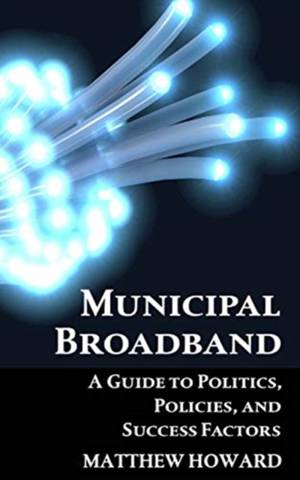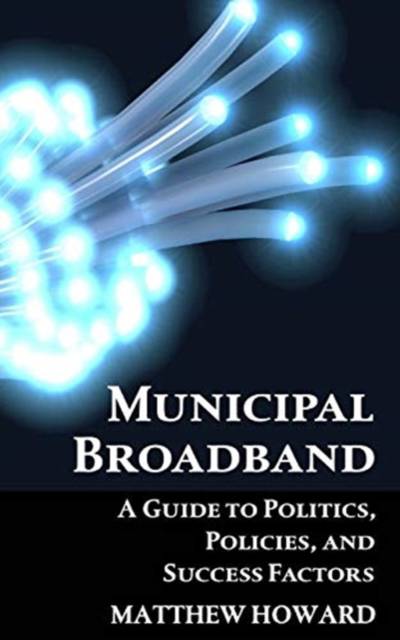
- Retrait gratuit dans votre magasin Club
- 7.000.000 titres dans notre catalogue
- Payer en toute sécurité
- Toujours un magasin près de chez vous
- Retrait gratuit dans votre magasin Club
- 7.000.0000 titres dans notre catalogue
- Payer en toute sécurité
- Toujours un magasin près de chez vous
10,45 €
+ 20 points
Description
Municipalities can revitalize their communities and improve their finances by taking the future of broadband into their own hands. This book will help them understand how to do it. Drawing on case studies from public administrators and peer-reviewed literature, this book identifies the factors that determine success or failure for a publicly owned broadband network.
The political dimension of municipal broadband largely defines whether public networks are legally possible to build in any given state. But it takes more than favorable legislation to make a network successful. Public administrators must also consider other dimensions of the problem: social, technological, financial, planning, and business models.
This multi-faceted problem does have solutions, and local governments across the nation have risen to the challenge of finding them. By learning from past triumphs and tragedies, administrators of future projects can steer projects in the right direction from the very beginning. Although the status of Internet access as a public utility remains contested at the federal level, delivering it as such has become a reality for hundreds of municipalities in the United States.
When cities build their own broadband networks and take control out of the hands of private ISPs, this public action threatens private monopolization. Private ISPs respond by lobbying state legislatures to enact laws restricting the growth of municipal broadband. In about half of the states in the nation, they have been successful. But a rising tide of hundreds of municipal networks resists the control of private ISPs, delivering more bandwidth and higher speeds at a lower cost than the corporate giants can (or want to) match.
Municipal broadband has become a crucial component of a free and open Internet. This book examines the relation of municipal broadband to recent developments in net neutrality policy, including the 2015 Open Internet Order and the FCC's December 2017 vote to repeal certain provisions of the Order.
The political dimension of municipal broadband largely defines whether public networks are legally possible to build in any given state. But it takes more than favorable legislation to make a network successful. Public administrators must also consider other dimensions of the problem: social, technological, financial, planning, and business models.
This multi-faceted problem does have solutions, and local governments across the nation have risen to the challenge of finding them. By learning from past triumphs and tragedies, administrators of future projects can steer projects in the right direction from the very beginning. Although the status of Internet access as a public utility remains contested at the federal level, delivering it as such has become a reality for hundreds of municipalities in the United States.
When cities build their own broadband networks and take control out of the hands of private ISPs, this public action threatens private monopolization. Private ISPs respond by lobbying state legislatures to enact laws restricting the growth of municipal broadband. In about half of the states in the nation, they have been successful. But a rising tide of hundreds of municipal networks resists the control of private ISPs, delivering more bandwidth and higher speeds at a lower cost than the corporate giants can (or want to) match.
Municipal broadband has become a crucial component of a free and open Internet. This book examines the relation of municipal broadband to recent developments in net neutrality policy, including the 2015 Open Internet Order and the FCC's December 2017 vote to repeal certain provisions of the Order.
Spécifications
Parties prenantes
- Auteur(s) :
- Editeur:
Contenu
- Nombre de pages :
- 84
- Langue:
- Anglais
- Collection :
- Tome:
- n° 1
Caractéristiques
- EAN:
- 9781981969944
- Date de parution :
- 24-12-17
- Format:
- Livre broché
- Format numérique:
- Trade paperback (VS)
- Dimensions :
- 127 mm x 203 mm
- Poids :
- 90 g

Les avis
Nous publions uniquement les avis qui respectent les conditions requises. Consultez nos conditions pour les avis.






